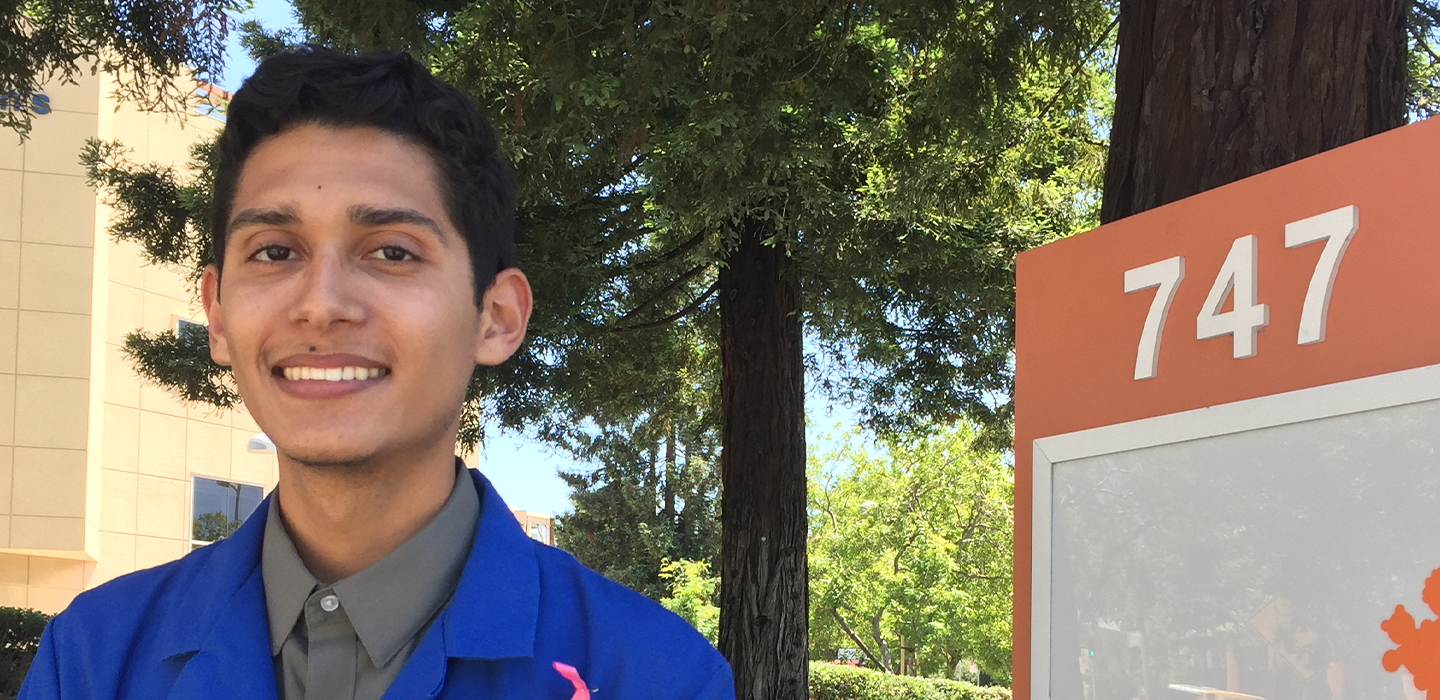CHAMPS: A Pathway to the Future
A high school mentorship on our Oakland campus aims to support youth interested in joining the medical field.

CHAMPS graduate, Edwin Guajardo, stands proudly in front of the Oakland campus.